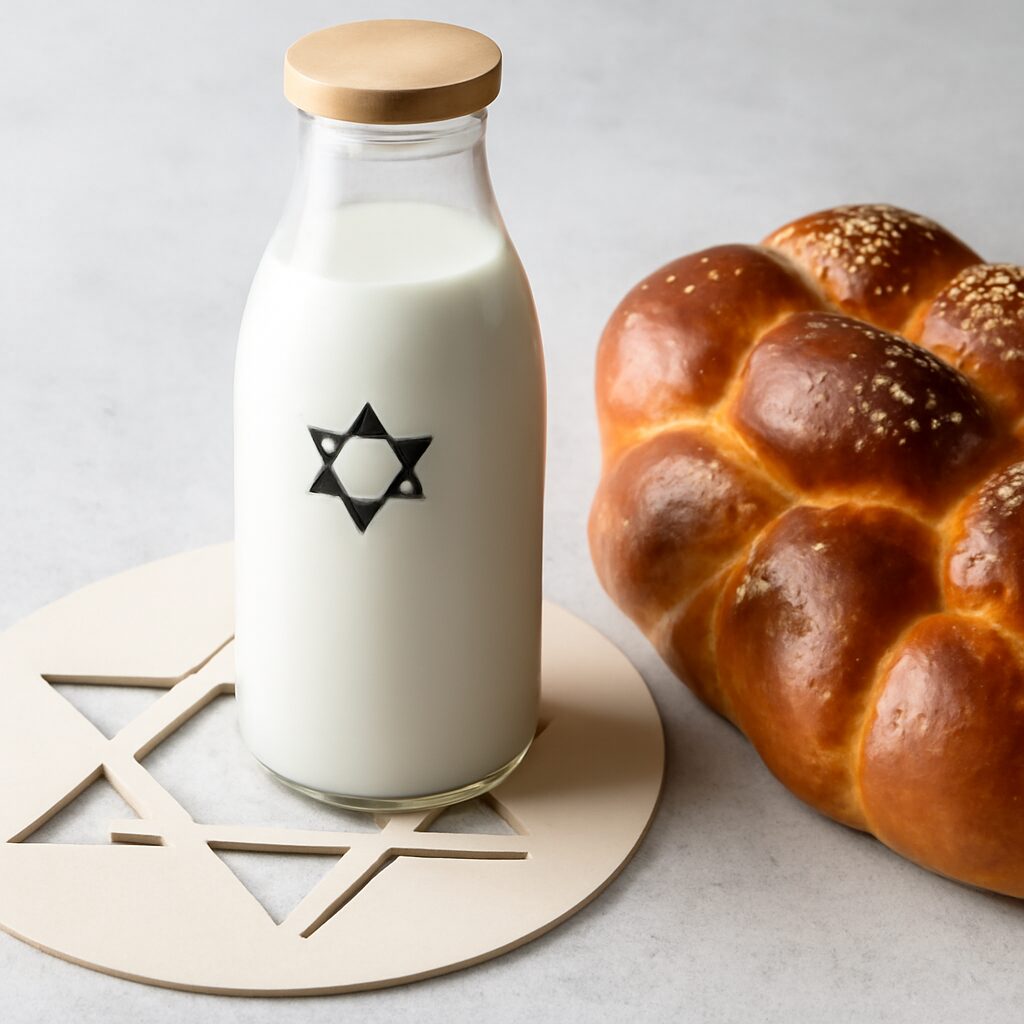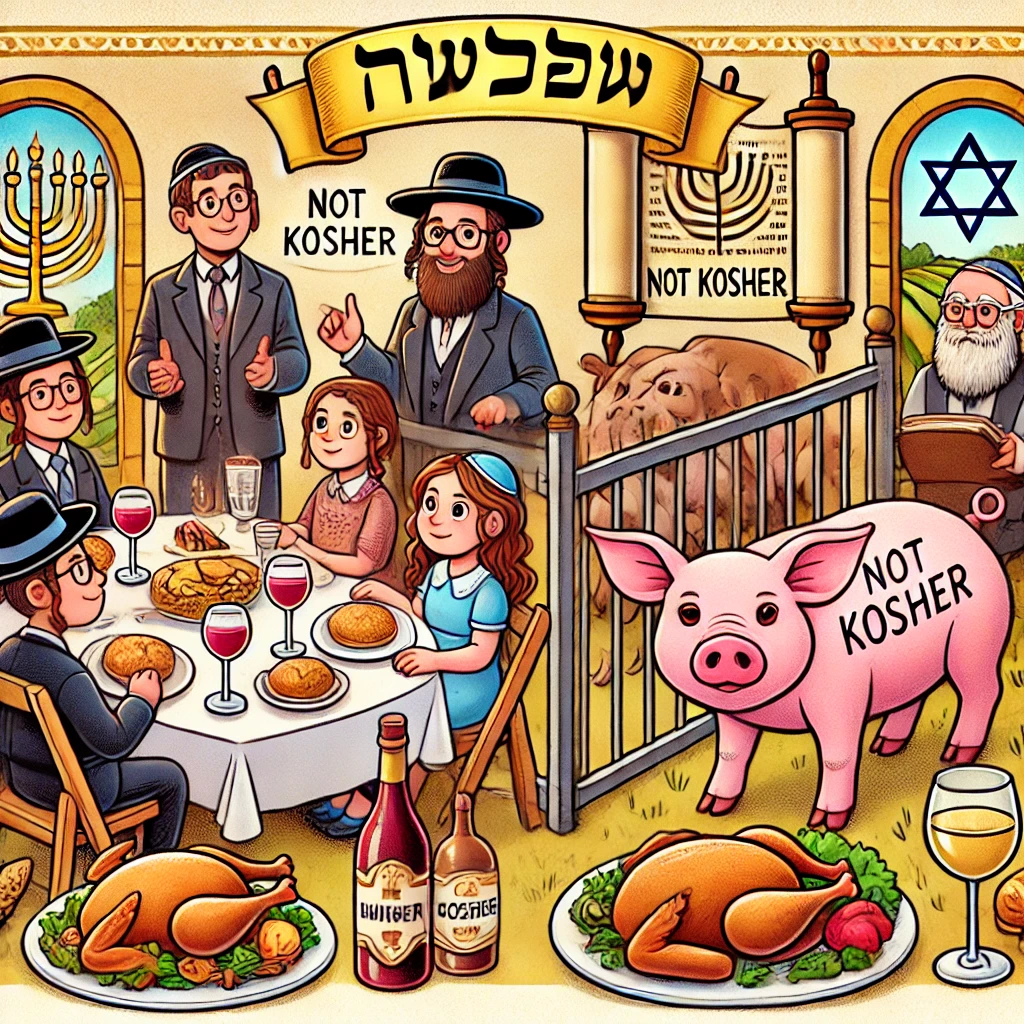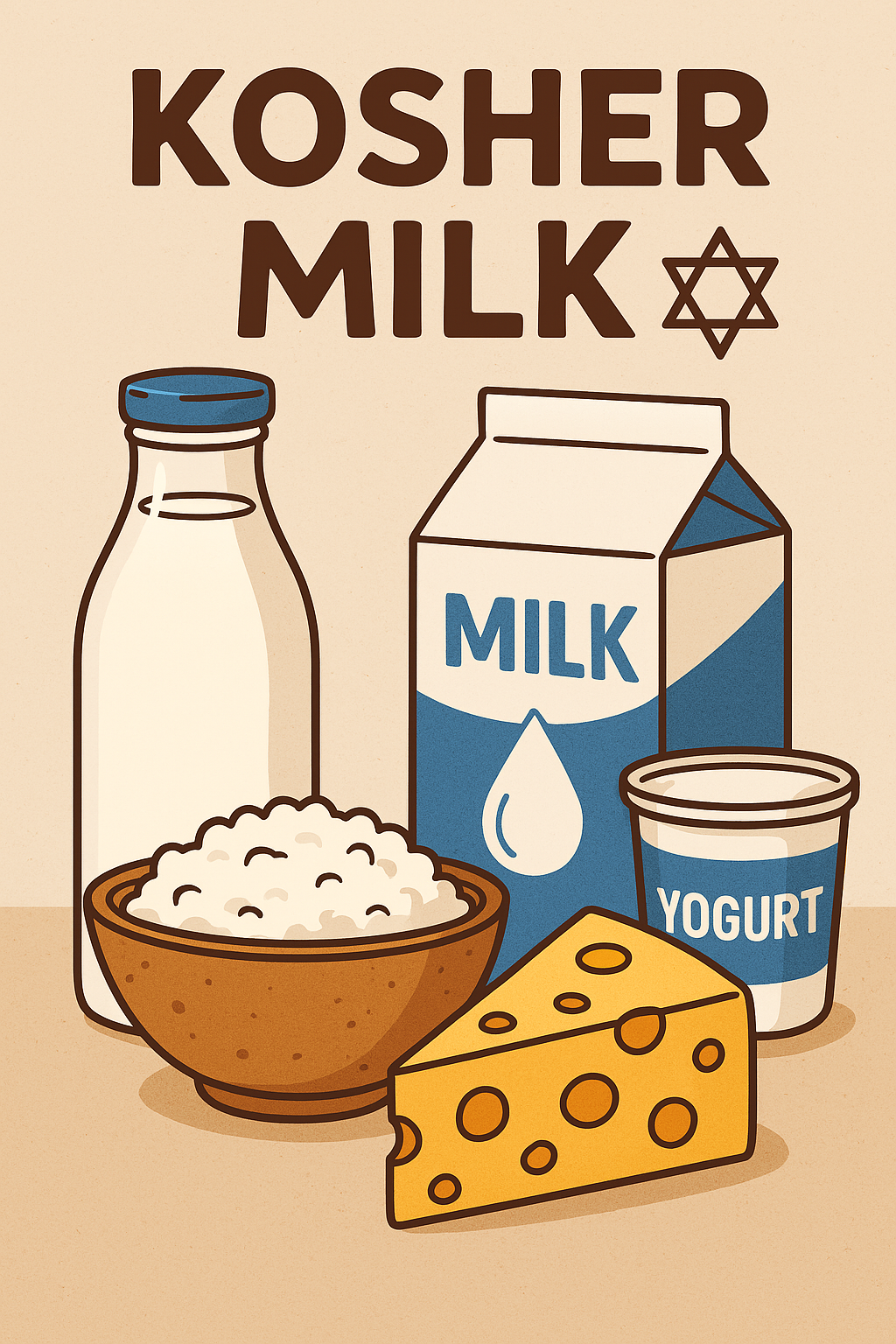
Kosher milk, or "chalav Yisrael," refers to milk produced under Jewish supervision to ensure it meets strict dietary laws. According to kosher guidelines, the milk must come from a kosher animal and be watched from the moment of milking to prevent contamination. This guarantees that no non-kosher substances or dairy from forbidden animals are mixed in.
What Is Kosher Milk?
To be considered kosher, milk must meet specific requirements related to its source, production, and handling.
Key Requirements for Kosher Milk
Kosher Milk

Source of the Milk
- Must come from a kosher animal (e.g., cows, goats, sheep).
- Milk from non-kosher animals (e.g., pigs, camels, horses) is forbidden.
No Mixing with Non-Kosher Milk
- Even a small amount of milk from a non-kosher animal renders the entire batch non-kosher.
- Some kosher certifications require supervision (mashgiach) to ensure no cross-contamination.
Chalav Yisrael (Jewish-Supervised Milk)
- Strict kosher observers require milk to be supervised by a Jew from milking to packaging (Chalav Yisrael).
- Many kosher certifications (like the OU) accept government-regulated milk (Chalav Stam) as kosher in the U.S., Canada, and Europe, provided no non-kosher additives are present.
No Non-Kosher Additives
- Flavored or processed milk (e.g., chocolate milk) must avoid non-kosher ingredients (like certain emulsifiers or gelatin).

Types of Kosher Milk Certifications
| Certification | Description |
|---|---|
| Chalav Yisrael | Milk supervised by a Jew at every stage (strictest standard). |
| Chalav Stam | Regular milk under government oversight (accepted by many kosher agencies). |
| OU-D, Kof-K-D | Kosher dairy certification (no meat derivatives or non-kosher additives). |
Common Questions About Kosher Milk
Only if it comes from a healthy cow and has no non-kosher additives. Stricter kosher observers may reject unsupervised milk.
Because it is plant-based rather than made from an animal, it does not conform to the Torah’s commandment prohibiting meat and milk together.
It’s milk that a Jew has supervised from milking to packaging. Some follow this stricter standard.
Only if they have a kosher symbol. Extra ingredients must also be kosher.
Bottom Line
Kosher milk must come from a kosher animal, avoid contamination, and meet supervision standards. Many Jews accept Chalav Stam (standard milk), although stricter observers only drink Chalav Yisrael. Always check for a reliable kosher certification (e.g., OU, Star-K) on the label.
Frequently Asked Questions
What makes milk kosher?
Kosher milk, also known as chalav Yisrael, comes from a kosher animal (like a cow or goat) and is supervised by a Jewish authority from milking to packaging to ensure no non-kosher additives or cross-contamination occurs.
Is regular supermarket milk kosher?
In many countries, regular supermarket milk may be considered kosher (chalav stam) by some Jewish authorities if there's government regulation preventing non-kosher milk mixing. However, strict kosher observers require specially supervised chalav Yisrael milk.
Can kosher milk be consumed with meat?
No, according to kosher dietary laws, milk and meat cannot be mixed or consumed together. There must be a waiting period (typically 1-6 hours depending on tradition) after eating meat before consuming dairy products.
What's the difference between kosher milk and regular milk?
The main difference is the supervision. Kosher milk has rabbinical oversight to ensure it comes from kosher animals and isn't mixed with non-kosher milk. Nutritionally, it's identical to regular milk unless specified as organic or with other special qualities.
Why do some Jews only drink chalav Yisrael milk?
Some Jewish communities follow stricter kosher standards requiring chalav Yisrael (milk supervised by Jews) due to historical concerns about potential mixing with non-kosher milk. This is a stringency beyond basic kosher requirements.






